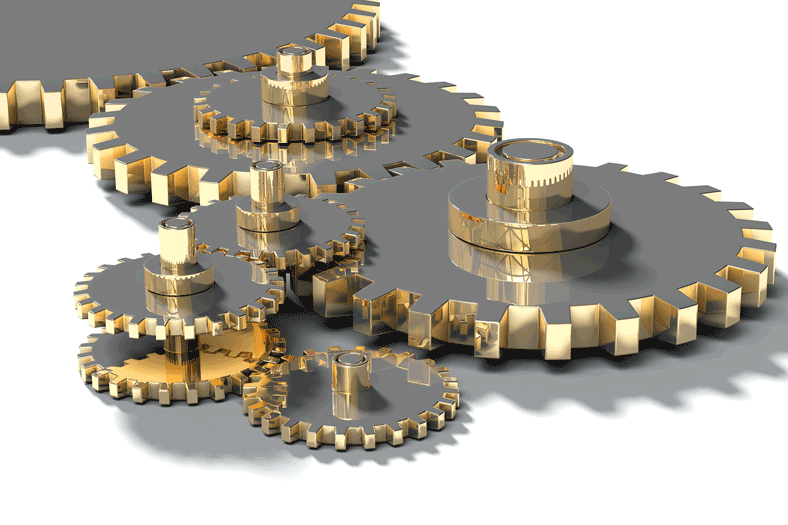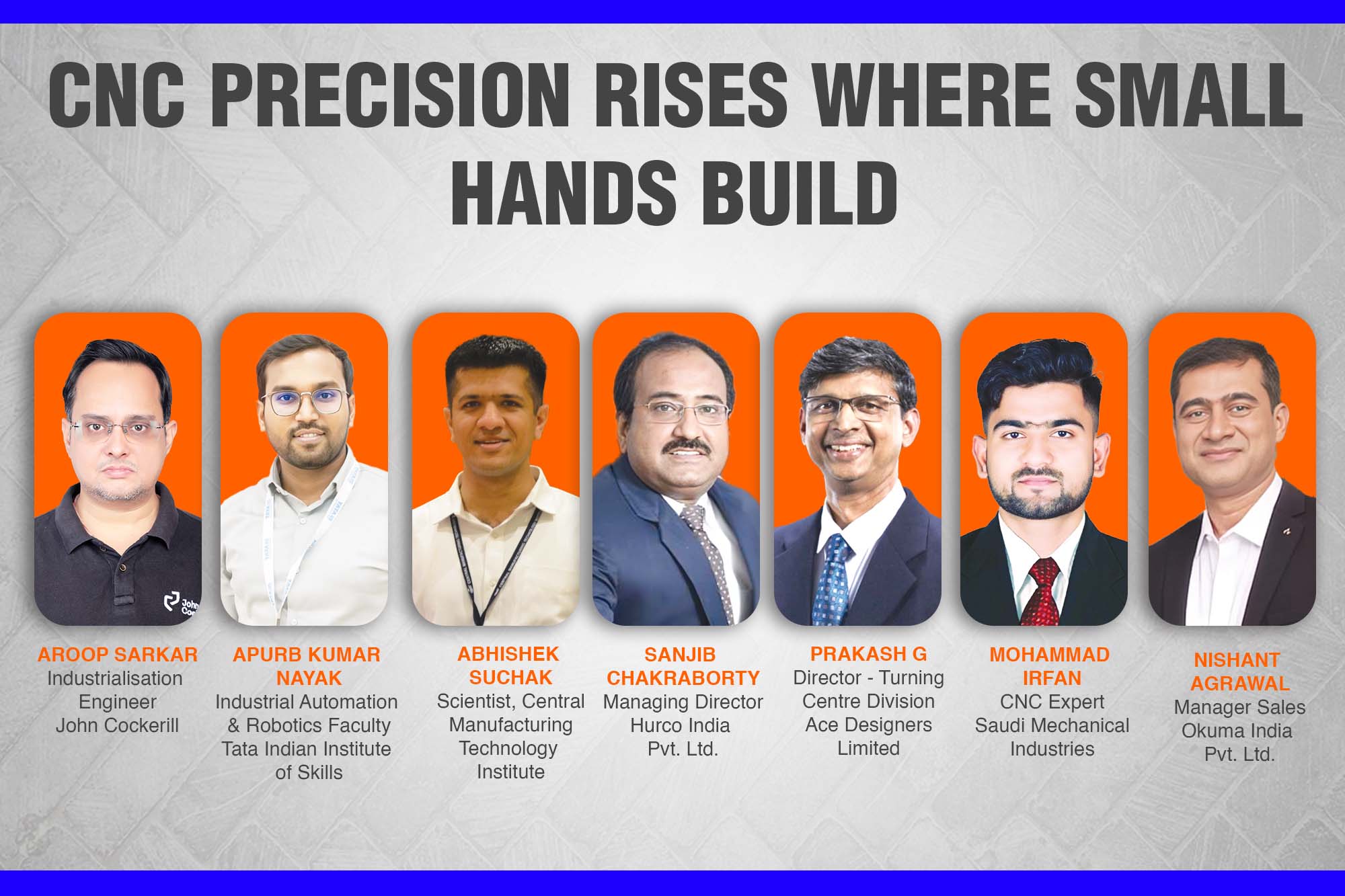Union Budget 2020: Impact on machine tool sector
By OEM Update Editorial March 6, 2020 6:21 pm IST
The Union Budget 2020 brought in many schemes for the machine tool sector. Here we discuss the impact of the budget on the sector.
The MSME machine tool sector is said to be the first one affected by a market slowdown and the last one to benefit in a market boom. Although it has a significant role in the Indian economy, it faces many infrastructure limitations and inadequate linkages to the market. After the GST introduction in July 2017, many unorganised MSME industries have formal documentation as a result of registering their businesses under this tax regime. Majority of these are still either self-financed or funded through expensive informal finance.
Financing for machine tools from banks and FIs, especially for MSMEs
According to the data released by the Reserve Bank of India (RBI) in 2019, MSME credit is only a small proportion (4.34 percent) of the total outstanding bank credit. Large industries’ share of total credit was highest at 27.84 percent. Banks and FIs offer fund-based products including loans, overdraft, and cash credit, as well as non-fund based products such as Letter of Credit and Bank Guarantees. Rahul Diwan, Business Development Manager, ANCA Motion Pty Ltd explains, “The share of MSMEs funded by public sector banks has fallen compared to private banks and Non Banking Financial Companies (NBFC). Typical limitations for MSMEs to obtain finance from big FIs or banks are creating complex documentation and charges of financial expertise for assistance.”
Government initiatives to promote financing for MSMEs in the machine tool sector
According to Diwan, From the current budget in February 2020, MSMEs have welcomed several major steps:
- More than five lakh MSMEs have benefitted from the restructuring of debt permitted by the RBI in the last year. The restructuring window was to end on 31st March 2020. However, the government has requested the RBI to consider extending this window until 31st March 2021.
- For start-ups, the allowed deduction of 100 percent in profits for three consecutive assessment years has been changed to a turnover limit of `100 crore from `25 crore. The period of eligibility for claim of deduction is also extended from 7 years to 10 years.
- Government e-Marketplace (GeM) is moving ahead in creating a Unified Procurement System as a single platform for procurement of goods, services and works in the country. Data shows that 3.24 lakh vendors are already on this platform and is proposed to reach a turnover of `3 lakh crore. These are some of the major initiatives taken by government.
Diwan adds that the government is further expected to perform the following initiatives for MSMEs in the machine tool sector:
-
Samadhaan is a delayed payment monitoring system that is used by MSMEs for filing cases related to delayed payments. However, out of approximately 32,000 cases, only 2031 were disposed of. The introduction of a Payment Act by the government is one of the first steps to safeguard MSMEs against the costs associated with prolonged delay in resolving open cases, by ensuring a prompter response time.
- Faster processing of GST refunds is required as these affect the available working capital.
For machine tool MSMEs, working capital credit is a major financing issue. Although the government has proposed to introduce subordinate debt for MSME entrepreneurs, implementation needs to be carried out and seen through. - The government should avoid a target-driven approach in loan disbursal under the MUDRA scheme. Banks may perform risk profile assessments whereby financial information and historical and projected cash flows of customers are reopened. Recovery feasibility must also be examined. MSME lending needs to be transformed into a core banking business.
Slashed corporate tax rates for manufacturing sector to help machine tool companies
The government slashed the corporate tax rate from 30 percent to 22 percent for existing companies, and from 25 percent to 15 percent for new manufacturing companies. Under this structure, the facility of carry forward losses is no longer allowed. As the majority of machine tool customers, mainly OEMs, have invested largely in new machinery and other infrastructure, they face a dilemma whether to opt for lower tax rates and increase profitability, or pay higher taxes under the existing rates and carry forward losses (up to eight years) to offset future profits. Regarding this, Diwan comments, “In many cases of loss-making companies with such capital investments, the effective tax rate is less than 25 percent. To ensure they choose the best solution for their business, they engage financial experts to check the implications of both options.”
On the other hand, small companies and new entrants will benefit greatly from the reduced rates of 22 percent and 15 percent.
Indian machine tool sector needs to go global
Globally, the Indian machine tool sector holds the 12th position in manufacturing and eighth position in consumption, with expectations to grow by 20-25 percent in the next two years. To keep up with the global market, the latest trends and technology in CNCs, robotics, IoT and Industry 4.0 need to be equipped on machines that are manufactured locally.
Recently, India has successfully attracted global companies by offering certain concessions to them. Import Custom Duty and Countervailing Duty (CVD) were waived for electronics products such as photovoltaic cells. Similarly, Special Economic Zones (SEZ) were provided at very low price and low taxes to electronic and software companies. This trend should continue in the automotive, electronics and defence sectors.
Diwan comments, “Increasing exports can be done by manufacturing machines that are of high quality and lower cost. Achieving high quality requires sophisticated and superior ‘mother machineries’, highly skilled employees, increased work efficiency, and engineering and technical institutions with curriculum that covers topics on the latest technology to build skill sets that are relevant and useful.”
Although lower cost is more difficult to achieve, efforts can be made to reduce input cost such as reducing raw material cost, using automation for faster production, cutting inefficient government regulations that lead to corruption, and having good infrastructure and logistics in place to increase efficiencies.
Cookie Consent
We use cookies to personalize your experience. By continuing to visit this website you agree to our Terms & Conditions, Privacy Policy and Cookie Policy.
















